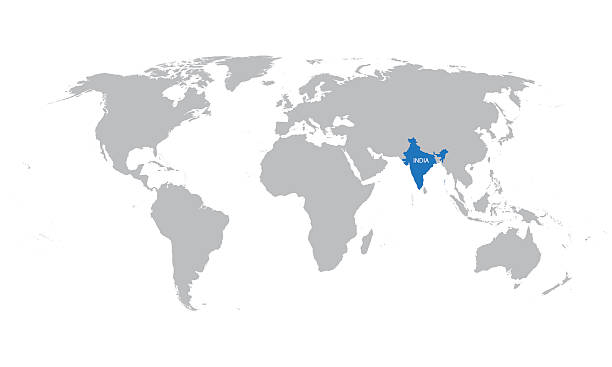In today’s globalized world, international relations play a crucial role in shaping a nation’s economy, culture, and politics. A career in international relations in India can provide exciting opportunities for those who want to contribute to building bridges between nations and working towards a more peaceful and prosperous world. In this blog, we will explore the scope of a career in IR in India, the types of roles and jobs available, and how to build a successful career in this field.
What is International Relations?
International relations (IR) is a branch of political science that deals with the study of interactions between nations, governments, and non-state actors. It encompasses a wide range of topics, including diplomacy, foreign policy, international law, globalization, and economic development. Professionals in IR work towards promoting peace, stability, and cooperation between nations, and addressing global challenges such as climate change, poverty, and inequality.
Types of Roles and Jobs in International Relations
A career in International Relations can lead to a variety of roles and jobs across different sectors. Here are some examples of career prospects in International Relations:
1. Diplomat: Diplomats represent their home country’s government in a foreign land. Their primary responsibilities include maintaining positive relations between the two countries, promoting trade and commerce, and providing assistance to citizens of their home country living abroad.
2. Foreign Service Officer: Foreign service officers work in embassies and consulates, facilitating visa applications, providing information on trade and business opportunities, and assisting with crisis management during emergencies.
3. International Business Executive: Professionals in this role work in companies that operate globally, handling import-export regulations, negotiating contracts, and developing market entry strategies.
4. Non-Governmental Organization (NGO) Professional: NGO professionals work towards addressing social, environmental, and humanitarian issues. They may work in fields such as advocacy, fundraising, program management, and research.
5. Think Tank Analyst: Think tanks are research organizations that provide policy recommendations to governments and private sector organizations. Analysts in think tanks conduct research, analyze data, and produce reports on various aspects of international relations.
International Relations Career Scope in India
India’s growing presence on the global stage has created numerous career opportunities in International Relations. The Indian government, private sector companies, NGOs, and think tanks offer various roles for professionals interested in IR. Here are some sectors that offer job opportunities in IR in India:
1. Government of India: The Ministry of External Affairs, Ministry of Defense, and Ministry of Commerce and Industry are some of the key government departments that require IR professionals.
2. Private Sector Companies: Multinational corporations operating in India need professionals with expertise in IR to navigate cross-cultural business transactions and manage international partnerships.
3. Non-Governmental Organizations (NGOs): NGOs focused on issues such as education, health, environment, and human rights require professionals with knowledge of IR to advocate for their causes and secure funding from international sources.
4. Think Tanks: Think tanks such as the Observer Research Foundation, the Centre for Civil Society, and the Institute for Defence Studies and Analyses offer research positions for scholars and analysts interested in IR.
5. Media: News organizations covering international affairs, such as BBC, CNN, and Al Jazeera, employ journalists and commentators with expertise in IR.
How to Make a Career in International Relations, Diplomacy and Foreign Policy
Making a career in international relations, diplomacy, and foreign policy can be a challenging yet rewarding path. To succeed in this field, it’s essential to have a strong foundation in politics, economics, history, and culture. Here are some steps you can take to make a career in IR:
Step 1: Earn a Bachelor’s Degree A bachelor’s degree in a relevant field such as political science, international relations, economics, or history is a minimum requirement for most entry-level positions in IR.
Step 2: Gain Practical Experience Participating in internships, fellowships, or volunteer programs can provide valuable hands-on experience and exposure to the inner workings of government agencies, NGOs, or private sector companies.
Step 3: Pursue a Master’s Degree Many professionals in IR choose to pursue a master’s degree in a related field, such as a Master’s in International Relations (MIR) or a Master’s in Public Administration (MPA). This advanced degree can deepen knowledge and skills, open up more senior-level positions, and increase earning potential.
Step 4: Network and Join Professional Associations Building a network of contacts within the IR community is crucial for success. Attend conferences, seminars, and networking events to meet professionals in the field and learn about new opportunities.
Importance and Impact of International Relations
In today’s globalized world, the importance of international relations cannot be overstated. It serves as the backbone of diplomacy and cooperation among nations, fostering mutual understanding and collaboration on a myriad of critical issues. By facilitating dialogue and negotiation, international relations help prevent conflicts and promote peaceful resolutions to disputes, ultimately safeguarding global stability and security.
Moreover, the impact of international relations extends far beyond the realm of politics, influencing economic prosperity, social development, and environmental sustainability. Through strategic partnerships and multilateral agreements, nations can address shared challenges such as climate change, pandemics, and terrorism more effectively, leading to tangible improvements in the lives of people worldwide. Embracing the principles of international relations is not just a diplomatic necessity; it is a moral imperative and a pathway to a brighter future for generations to come.
Conclusion
In conclusion, a career in international relations holds immense potential for individuals seeking to make a positive impact on the world stage. From fostering diplomacy and cooperation to addressing global challenges such as climate change and poverty, professionals in this field play a pivotal role in shaping a more peaceful, prosperous, and sustainable future for all. By embracing the principles of international relations and leveraging their skills and expertise, individuals can contribute to building bridges between nations and creating a world where collaboration and understanding prevail. As we navigate the complexities of our interconnected world, the significance of international relations remains undeniable, offering endless opportunities for growth, development, and meaningful engagement on the global stage.



